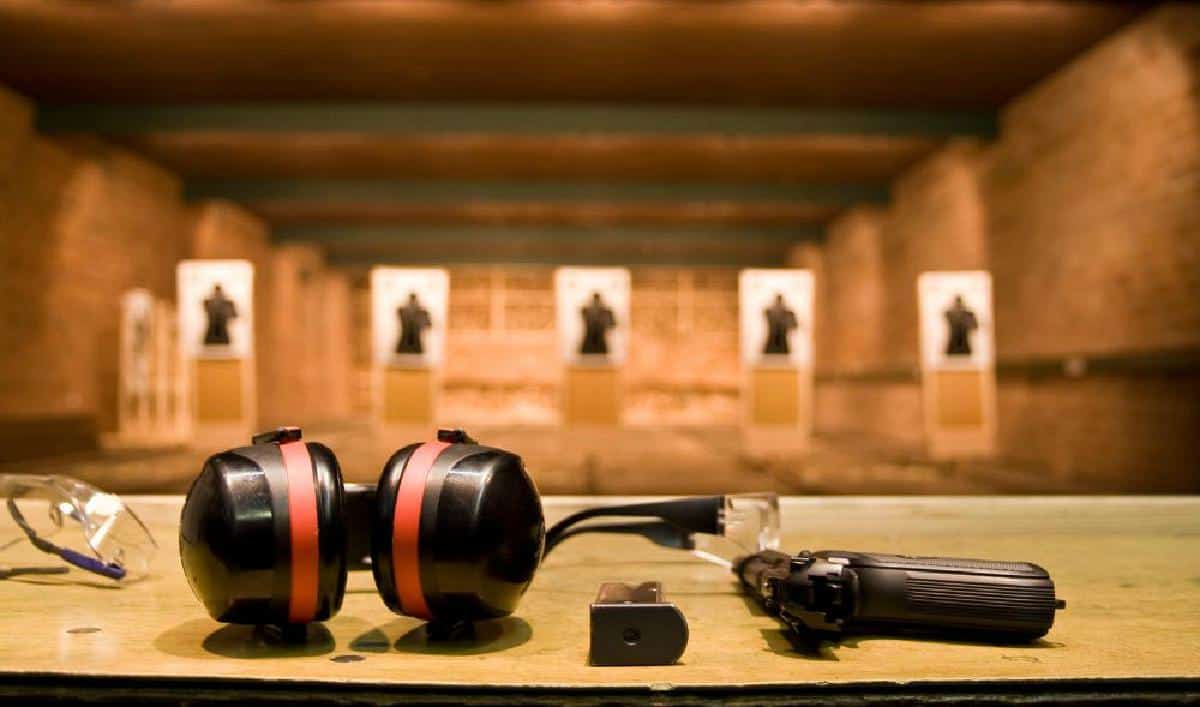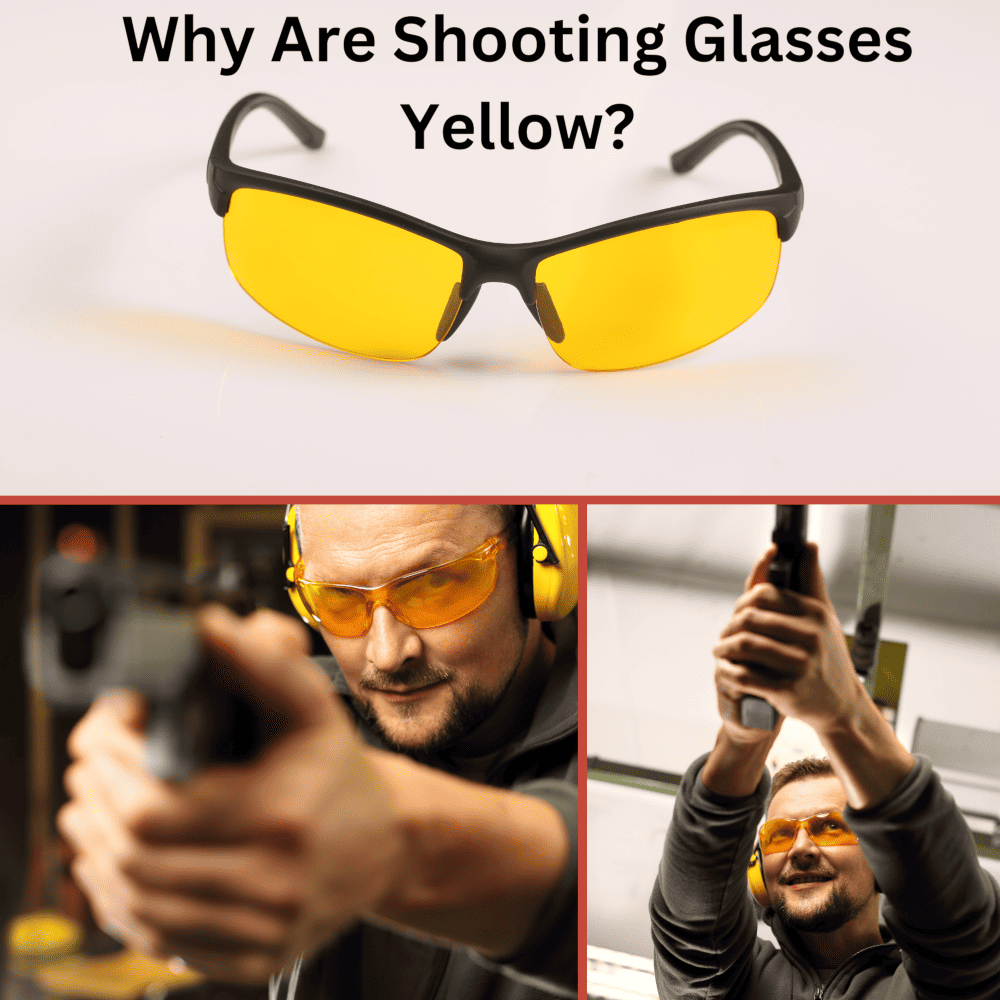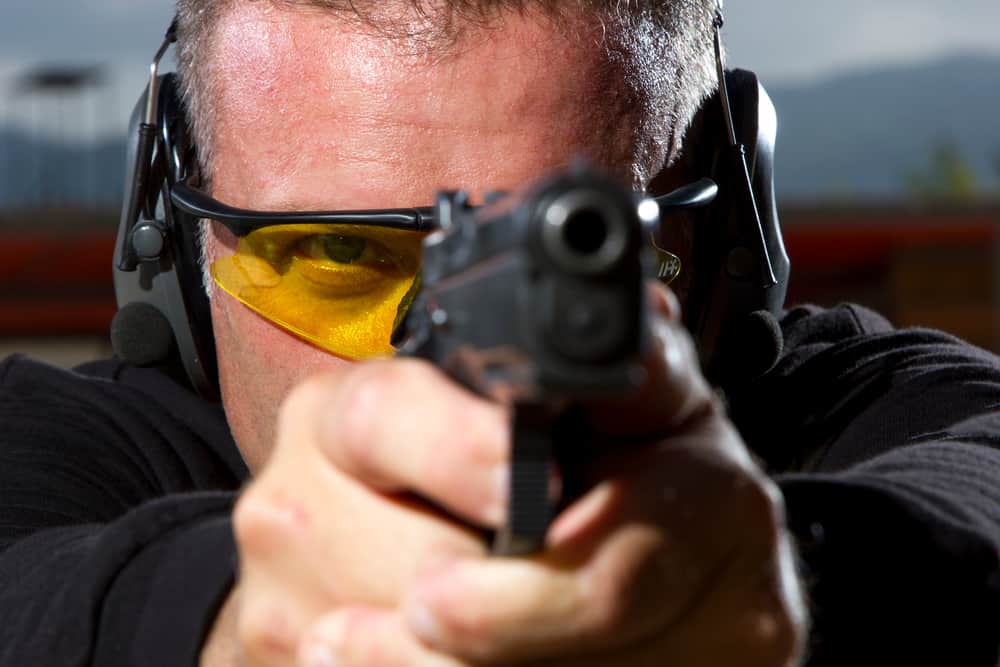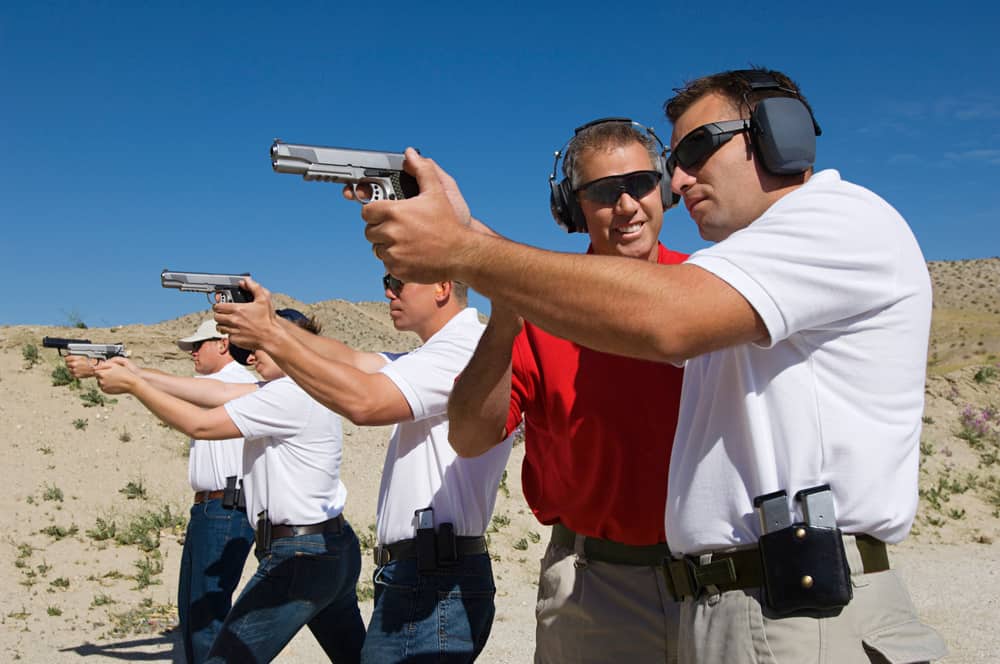So you’ve decided to start shopping for a new set of shooting glasses, and what glasses features should you consider?
Before you start shopping, it’s important to clearly understand what I’ll call important features compared to optional features.
And by “optional,” I mean nice features to have but not a core component with shooting glasses. Some examples of optional features would:
- Integrated Bluetooth wireless hearing protection (which is a real thing these days)
- Frames made of fancy materials like titanium or Kevlar™
- Frames with integrated hearing protection (I personally prefer to be able to use my own choice of hearing protection)
I recommend that you evaluate shooting glasses on the following components when making your decision:
- Lens Material
- Lens Impact Resistance
- Lens UV protection
- Frame Coverage
- Lens color
- Frame fit
Although these components aren’t all-inclusive, I feel that they represent the essential parts of shooting glasses. Some of the features/components listed above, such as lens material, impact resistance, and frame coverage, could be considered core components, while others may have more secondary importance.
At my day job (I work for a large outdoor sporting company), I’m often asked this question:
What’s the most important thing to look for in shooting glasses?
If I had to pick just one feature to really pay attention to, it’s the impact resistance rating. I mean, if the lenses won’t stand up to a serious impact, then what’s the point?
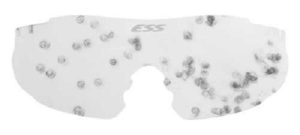
I’ll dive deeper into the different ballistic eyewear standards like ANSI Z87.1 later on when I talk about impact resistance.
Another thing to take into consideration is what type of shooting you will be doing? This is important as some shooting glasses models and styles are specialized and geared towards a specific type of shooting.
For example, if you’re a trap shooter or skeet shooter, you’ll want glasses built for those shooting sports versus shooting glasses built for pistol shooting.
And there are more specialized glasses models on the market that specifically geared towards a specific shooting discipline, and I’ll get more into those in another part of the site.
Here are some of the more frequently asked questions that I see in terms of shooting glasses features:
Can I wear regular sunglasses instead of having to buy a pair of shooting glasses?
Regular sunglasses are certainly better than no eye protection, but hardly any “regular” sunglasses meet the minimum impact standards (civilian or military standards). As such, the lenses most likely won’t hold up to a serious impact in a shooting scenario. They may not even stand up to impact from a BB or pellet from air or CO2 powered firearm.
Also, most shooting ranges will not allow you to shoot if you don’t have protective eyewear that at least meets the minimum ANSI Z87.1 standard.
What if I need RX range glasses?
Prescription shooting glasses can be tricky and difficult to find; take it from someone who wears them personally. I’ve dedicated an entire page to the ins and outs of prescription shooting glasses options, which can be seen here: RX Shooting glasses.
Can I use inexpensive safety goggles instead of having to buy shooting glasses?
Like I’ve mentioned before, any eye protection is better than no eye protection at all, so inexpensive safety glasses are certainly a better option than standard sunglasses or no glasses at all.
However, while most inexpensive safety glasses models feature a high level of eye protection, they don’t tend to feature very good optical clarity. As such, your money is typically better spent actually purchasing a set of shooting glasses.
Does the lens color on shooting glasses really matter?
Again, if you’re talking about the difference between wearing eye protection or no protection at all, the lens color isn’t an issue for me. However, there are advantages that certain lens colors offer over others, and I go deeper into that topic on the lens page here.
Why do you need shooting glasses?
The most basic premise behind shooting glasses is they offer protection for the eyes from many external factors like:
- High-speed projectiles
- Dust
- Wind
- UV rays (if they offer UV protection)
- Flying brass
- Powder
Given how vital your vision is, investing in a pair of shooting glasses is money well spent.
What’s the difference between shooting glasses and firearm safety glasses?
Nothing really other than the name. Firearms safety glasses are just a lesser-known name for shooting glasses. Rather than calling them “shooting glasses,” some gun ranges prefer to call them “firearm safety glasses.”

